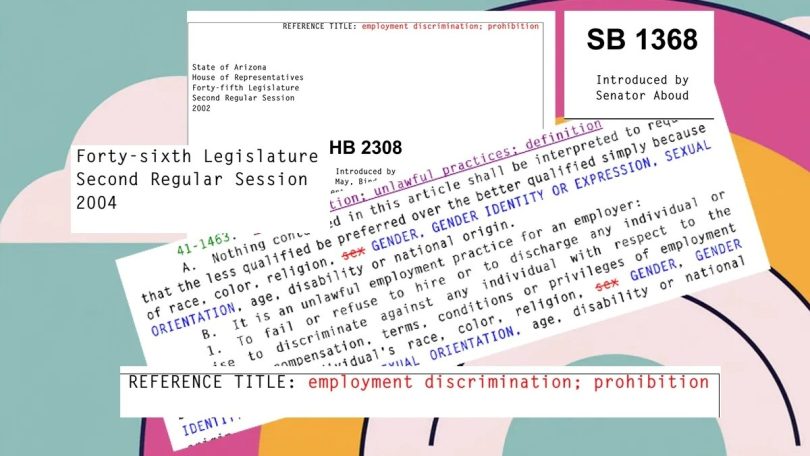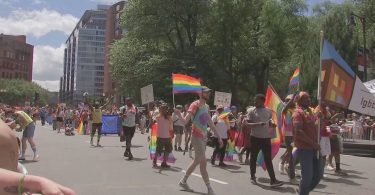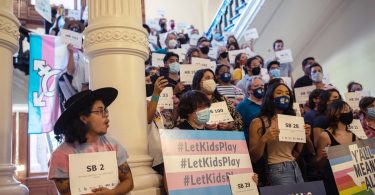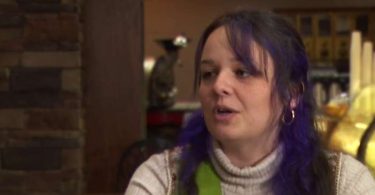Twenty-two states have comprehensive LGBTQ+ civil rights laws on the books. Arizona, though, is not one of them.
The fight to pass an anti-discrimination bill is now more than twenty years old here. Since at least 2002, Arizona lawmakers—mostly Democrats, but also some Republicans—have repeatedly introduced bills that would include sexual orientation and gender identity among the state’s protected classes, such as race, sex, and religion. And although those bills varied in scope, they would have generally protected LGBTQ+ people from discrimination in employment, housing, or public accommodations.
But none of those bills went anywhere.
Instead, protection within the state is enforced by local municipalities; only 11 Arizona cities have ordinances that indicate being LGBTQ+ as a protected class.
Civil rights advocates say a comprehensive statewide anti-discrimination law is necessary. The urban cities that provide protections only account for half of the state’s general population, and research shows LGBTQ+ adults—especially in rural areas—are more likely to experience unemployment or homelessness compared to others.
And though there is competing data on whether or not nondiscrimination bills actually do what they intend, advocates say that it’s better to have something than nothing.
ONCE BIPARTISAN, NOW ONE-SIDED
Employment protections for LGBTQ+ people exist at the federal level, but if the Supreme Court were to roll back those protections it could leave queer people vulnerable, similar to when states saw local abortion laws triggered after Roe v. Wade was overturned.
Darrell Hill, policy director for the American Civil Liberties Union of Arizona, expressed the importance of a statewide law to avoid that, and protect people from experiencing homelessness or joblessness: “These are very serious consequences of discrimination,” he said.
There was a time when anti-discrimination bills did seem like they could have been a reality with Republican support.
In 2002, when Republicans held a supermajority in the House, six of them signed onto a nondiscrimination House bill with Democrats. However, the bill was never brought up for a vote and died in committee.
That support has since dwindled significantly. Between 2018 and 2022, bills that would have provided protections in employment, housing, and public accommodations had at least one member of each party backing them.
And over the past two years, amid an onslaught of anti-LGBTQ+ bills in the Arizona legislature, Republican support for a bill to protect queer people from discrimination has gone from slim to nonexistent. Even openly gay Republican lawmaker, state Rep. Matt Gress (R-Phoenix), did not support any of the three bills introduced by Democrats the last two sessions.
And attempts to make the legislation bipartisan have been stymied, said state Rep. Oscar De Los Santos (D-Phoenix) who also is the co-chair of the LGBTQ+ Legislative Caucus. He said he reached out to Gress to try to gain support for HB2625, an anti-discrimination bill introduced this past session. Gress did not respond, he told LOOKOUT.
De Los Santos said Republicans who would otherwise support the legislation might be afraid to go against their party. He noted that Republican leadership recently removed Gress from the House Appropriations Committee in April after voting alongside Democrats to repeal the state’s near-total abortion ban.
Gress did not respond to multiple requests for comment from LOOKOUT.
WHAT WILL IT TAKE?
Seventy-seven percent of Arizonans favor laws protecting LGBTQ+ people from discrimination, according to a 2022 survey by the nonprofit public opinion research institute PRRI.
So why hasn’t something happened?
“As a matter of reality it’s going to take us to flip the legislature,” De Los Santos said.
Politicians on both sides of the aisle agree, especially as Republicans aligned with the state’s “Freedom Caucus” wield more power and move farther to the right on social issues, such as limiting transgender health care or criminalizing drag in public areas.
State Sen. John Kavanagh (R-Fountain Hills) who is associated with the state’s Freedom Caucus, said he and his colleagues disagree with a bill to provide protections for LGBTQ+ Arizonans. He was the only Republican to respond to LOOKOUT’s request for comment.
“I don’t think it would be good public policy, in that it would take away some people’s freedom of association, and it would generate lawsuits, and it would step on some people’s religious principles,” he said. A bill that did give religious exemptions was introduced last session, but Kavanagh still didn’t support it.
Kavanagh was the first lawmaker in the nation to propose a bathroom ban for trans students, and was the sponsor of multiple anti-LGBTQ+ bills this year, including one that would “out” queer kids to parents. Most of his bills passed the legislature but were vetoed by Gov. Katie Hobbs, a Democrat.
Rep. Analise Ortiz (D-Phoenix), and State Rep. Lorena Austin (D-Mesa), both members of the LGBTQ+ Legislative Caucus, agreed that Democratic control is necessary to getting the legislation passed: “Republicans have repeatedly shown their complete refusal to pass even the most low-level bills that would support the LGBTQ+ community,” Ortiz said.







